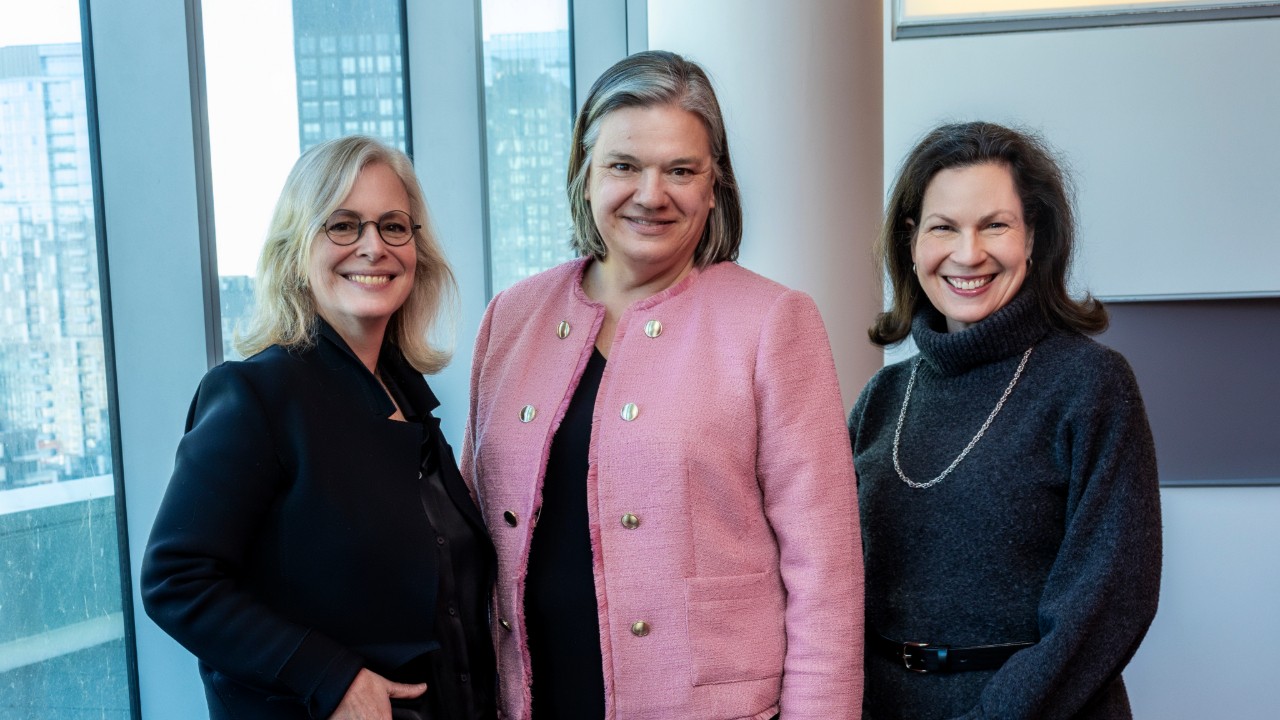We need to nurture the next generation of women in leadership

This opinion piece was originally published in The Montreal Gazette on March 8.
Since the start of the pandemic, we, the deans of three of Concordia University's four faculties, have noted with concern a decline in the representation of women in leadership positions in Canada, particularly in academia.
Many academic leaders have recently decided to end their term of office or not to renew it. We therefore wonder about the forces at play in this withdrawal, which are certainly multiple and complex, and above all we want to suggest possible solutions.
Before the health crisis, we had noted encouraging progress: although modest, the figures showed an increase in the presence of women in leadership positions within universities. However, by 2021, only 20 per cent of the world's top 200 universities had appointed a female president, as Julie Cafley, vice-president of communications and external relations at the Digital Research Alliance of Canada, and a specialist in leadership in higher education, pointed out in an essay on the subject published by University Affairs. In addition, from 2019 to 2021, five presidents did not complete their term of office in Canadian universities; of these, four were women.
Not only does the pandemic seem to have exacerbated human resources issues in areas dominated by women — such as education and health — and have worrying economic consequences for women, it has also caused a decline in their presence in management positions. This situation is not unlike what is happening in the business world. In 2019-20, only 23.7 per cent of senior management positions in Canadian companies were held by women, according to Statistics Canada. What's more, women held more vice-president positions (27.8 per cent) than chairperson positions (1.3 per cent).
These numbers have since fallen. In 2022, McKinsey published its eighth study on the advancement of women in the corporate world, Women in the Workplace, and found that women managers left their jobs at a higher rate than their male colleagues.
The pandemic highlighted the challenges faced by women, both professionally and personally, particularly in terms of balancing work and family life. Have they withdrawn temporarily to rebalance and rebuild? We hope so. But this decline shows that the overall increase in the presence of women in management positions remains fragile and cannot be taken for granted. Despite the significant progress made in the past, has this crisis left us feeling uncertain about the future? Where is the next generation? How can we nurture it?
As researchers, professors and academic leaders, we have developed our resilience and skills over the years. The discovery of our abilities has been made possible not only by our own determination, but also by the support of our colleagues and mentors, members of senior management and the institutions we have worked for, who have shown clear confidence in us, and who have supported us through the difficulties — and crises — we have had to deal with. As leaders, it's our turn to support our teams and colleagues on their journey, taking into account the particular conditions they face.
A first step in the right direction is to identify the obstacles faced by women in accessing management positions, and then to take concrete measures to support them at every stage of their career path. It is essential to cultivate leadership that is caring, inclusive, strong and sustainable. This is part of our mission as deans. But it's important to note that we are working in a special context. Concordia University is notable for the large number of women in its management: more than 50 per cent. Concordia's John Molson School of Business has also received parity certification from La Gouvernance au Féminin, and is the first school of its kind in Canada to get this recognition.
On International Women's Day, instead of talking about female leadership, we propose the term "benevolent leadership," because its characteristics are not exclusively gendered. It's up to all of us to reorient our approach to foster the development of each individual.
Let's encourage team discussions where every voice can be heard and considered. Let's ensure representation and parity within leadership groups. Collaborate in a spirit of service to others, adopting a humane and inclusive approach. Let's develop and support leadership that promotes collegial and consultative management, leadership that actively uses the multiple qualities and perspectives of our members. And let's have the strength, confidence and boldness to implement this new vision within our organizations.
It is through these means that we will succeed in cultivating the next generation of women academic leaders. Let's celebrate International Women's Day together!
Anne-Marie Croteau is the dean of Concordia University's John Molson School of Business.
Annie Gérin is the dean of Concordia's Faculty of Fine Arts.
Pascale Sicotte is the dean of Concordia's Faculty of Arts and Science.